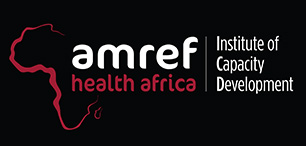Samburu is one of the most marginalised counties in Kenya (second poorest in the country) with four out of five people living on less than $1 per day. Most maternal and new-born health indicators in Samburu are lower than the national average, especially because of the low numbers of skilled deliveries. The Uzazi Salama project is an MNH project aimed at improving access to better maternal health in Samburu County with a focus on improving the maternal and newborn health indicators.
This is a scale up of Phase I that was undertaken between 2013 and 2015 in 2 sites in Samburu Central sub-county (Suguta Mar Mar and Barsaloi). Specifically, over the 3-year (Phase II) period, the project focused on improving quality care in 57 health facilities across the county and creating demand through community education from 10 community units (CUs) across the county.
The Uzazi Salama is a consortium of three partners with complementary deliverables:
- Amref Health Africa – executing community education activities through the Community Health Strategy and the Training of Health Care Workers
- PharmAcess Foundation implementing quality improvement in health facilities and referral system (ambulance) management
- M-Pesa Foundation – funding partner
- Safaricom network installation
- Samburu County Government providing direction and policy regulation for the implementation of activities.
This is a scale up of Phase I that was undertaken between 2013 and 2015 in 2 sites in Samburu Central sub-county (Suguta Mar Mar and Barsaloi). Specifically, over the 3-year (Phase II) period, the project focused on improving quality care in 57 health facilities across the county and creating demand through community education from 10 community units (CUs) across the county.
Trained 276 nurses on BeMONC
Trained over 400 Community Health Volunteers using Leap the mHealth platform
Fully immunised children indicator increased from 4,193 in 2015 to 13,752 in 2018
Pregnant women attending 4 ANC visits indicator increased from 3,210 in 2015 to 8,282 in2018
Skilled deliveries increased by 23.5% as at 2018.
- Human Resources for Health (HRH)
- Community Systems Strengthening
- Continuous Quality Improvement
- M-innovations for Health Care Financing
Location/Region: Samburu County, Kenya
Project Duration: 2015-2018
Donor: Mpesa Foundation
- Train 276 Nurses on BeMONC/CeMONC
- Develop and implement SafeCare quality improvement plans for all Samburu County health facilities
- Create eLearning centres for Continuous Professional Development (CPD) for HCWs
- Train 20 CHEWs on Community Health Strategy and mLearning (Leap)
- Create 10 Community Health Units (CHUs)
- Support the activities of CHUs
- Train 500 Community Health
- Volunteers (CHVs) using Leap
- Establish 10 mother to mother and 10 father to father support groups
- Establish communication partnerships for advocacy
- Health financing with M- Tiba to deliver transport vouchers for pregnant mothers to access health facilities.
